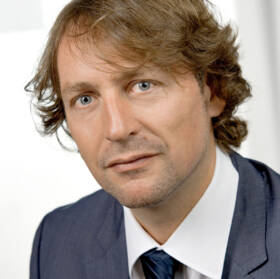Aims to sensitize young people to sustainable mobility and, using the Lakeside Park as a best-practise example, to teach about its benefits for the wider public.
Background
The climate objectives that have been formulated in Paris, by the EU and the government in Austria leave no doubt that is absolutely essential to reduce CO2 emissions. For this a package of measures is required, one of which being the transformation of the traffic sector towards sustainable mobility. Such profound changes pose a major challenge for the society as a whole. For instance, securing the competitiveness of the economy and jobs in tourism is of vital interest from an economic viewpoint. From an ecological viewpoint, sustainable means of transport need be promoted to minimize pollution and resource consumption, thereby contributing to a high quality of life. In addition, mobility has to be affordable for everyone. To meet all these requirements is a demanding task for the whole society. Consequently, sensitizing the wider public to the coming changes is an investment that may result in a higher acceptance of the measures that need to be taken.
Project Content
The master plan for sustainable mobility in Carinthia (MoMaK 2023) stipulates that by the year 2035 overall traffic shall be made up of 20% public transport, 40% pedestrian and bicycle traffic, and 40% private cars. To reach these goals concepts for sustainable mobility are developed at three business and education clusters (i.e., Lakeside Science & Technology Park GmbH in Klagenfurt and two additions locations in Villach and St.Veit). The main focus is on innovative ideas that help to reduce motorized individual transport. An additional asset of this initiative is that it – aside from experts for mobility – involves different stakeholders from the regions as well as young people. The current project fits in here well as it set ups an educational program, that – using the Lakeside Park as an example – sensitizes young people to sustainable mobility and its benefits for the whole region.
Goals
The primary aims of the project are twofold: On the one hand, it intends to answer questions such as “what is sustainable mobility” and to make clear how important mobility is for reaching climate protection goals. On the other hand, it strives to gain new insights and use the input obtained during the project to create novel and viable concepts for sustainable mobility. The main target group are young people such as pupils, students and trainees. Also, entrepreneurs and people working in the Lakeside Park as well as visitors and people who are interested in the topic are welcome to participate.
Overview of the project’s main aims:
- Raising the awareness of the participants for sustainable mobility.
- Teaching young people skills that help them to develop concepts for their future.
- Using the insights gained and the output of the education program as input for new mobility concepts.
Methods
The project consists of six steps:
- Contest of excuses
- Photo/videoworkshop on the topic sustainable mobility
- Design thinking workshop using 3D Modelling
- Simulation game including a stakeholder analysis
- Video workshop with subsequent contest
- Closing event
Each step builds on the outcomes of the previous one resulting in a procedure that leads from a broad basis of different ideas and inputs to a manageable number of straightforward and concrete concepts in the final stages of the program. Despite being chronologically organized, it is possible for participants to join the program at any stage.
The heterogenous group of project partners covers all competences needed, which ensures results of high quality. St.Pölten UAS has extensive experience in research and teaching regarding mobility and (modern) media. The project partner PLIA has an expertise in sustainability and circular economy and the smart lab CARINTHIA has the technical known-how that are needed to reach the goals of the project.
Results
The project yields new solutions for sustainable mobility and introduces an educational concept that can be applied to similar use cases. The educational concept and all its methods will also be turned into publicly available guidelines for everyone who plans to carry out other projects of that kind.
This project is co-funded by the European Regional Development Fund (ERDF).
You want to know more? Feel free to ask!
Academic Director Rail Technology and Mobility (BA)
Academic Director Rail Vehicle Technology (BA)
Head of Research Institute
Carl Ritter von Ghega Institute for Integrated Mobility Research
Deputy Academic Director Rail Technology and Management of Railway Systems (MA)
Department of Rail Technology and Mobility
Sebastian Fieber
Thomas-Peter Hadl
- Gemeinnütziger Verein zur Förderung der Circular Economy -Product Life Institute Austria (plia)
- Smart lab CARINTHIA der Fachhochschule Kärnten
- Lakeside Science & Technology Park



